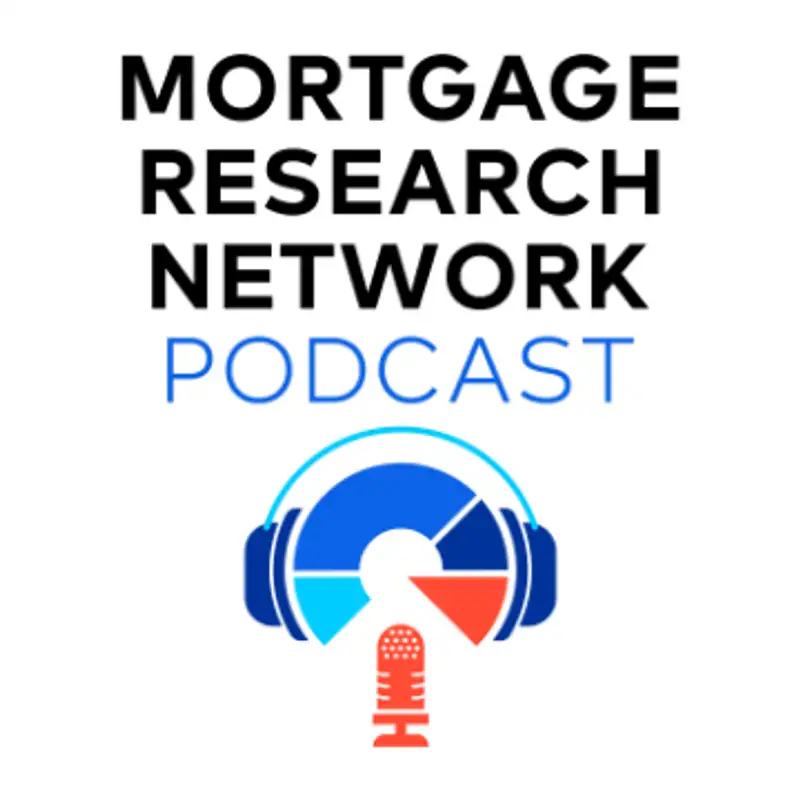National Emergency 101: Could It Actually Help Housing?
Welcome to the Mortgage Research Network Podcast. Just a note that this podcast audio is AI-generated but based on content that was produced by people. And your hosts, Tim and Craig, are real. Without further ado, let's get into today's topic.
I'm your host, Tim Lucas, editor of MortgageResearch.com and a former mortgage professional, and with me is Craig Berry, a mortgage originator with 25 years experience. Craig, since 1985, home prices have skyrocketed 403% while incomes have only grown 252%. The American Dream is literally getting priced out of reach.
And now we're hearing about a potential national housing emergency declaration? That's quite the development.
Yeah, Treasury Secretary Bessent let it slip after what was supposed to be an interview about taxes on tips. The cameras were off, but the audio caught it. and you know what's fascinating? A national emergency declaration doesn't even need a natural disaster or crisis to trigger it.
So what kind of powers would this actually give the administration?
Well, looking at past emergencies gives us some clues. Take the National Energy Emergency from 2025. they used it to open up federal lands for mineral production. Apply that same thinking to housing, and we could see federal lands being freed up for residential development. Though the environmental implications there could be pretty significant. and most of these areas are not condusive to building and are pretty far away from employment.
And there's the financial aspect too. Previous emergencies led to some pretty creative solutions with government-backed loans.
Exactly right. The national energy emergency authorized the Small Business Administration to offer favorable terms to mining companies. And here's where it gets interesting. They could potentially roll back tariffs on building materials like Canadian lumber and Mexican sheet rock. These costs really add up in home construction.
Though I have to wonder if those savings would actually reach homebuyers or just improve builders' profit margins.
That's a good point. And it connects to this bigger issue with mortgage rates. Everyone keeps talking about lowering them, but here's the thing - the government can't really control those rates directly. The market drives them, not the Fed.
Well, they do have some tools at their disposal, especially with government-backed loans like FHA mortgages.
Oh man, those FHA fees are NO JOKE. We're talking about an upfront fee of 1.75% on the loan amount. So for a $300,000 loan, which is pretty modest in many markets, that's over $5,000 added to the loan balance. Monthly FHA mortgage insurance is about $140 per month on that loan size. An emergency declaration could potentially slash those costs.
You know what's interesting? During the 2008 housing crisis, they never actually declared a national emergency.
Right. because Congress moved quickly with TARP. But today's situation is totally different. We're dealing with a supply crisis that's been brewing for over 20 years. After 2008, builders basically decided they'd rather build too little than too much. And now we're seeing the consequences.
And local regulations aren't helping either. Those building permit numbers in dense areas are pretty shocking.
They really are. Like, we're talking six or fewer permits per 1,000 people in our most densely populated areas. exactly where we need more housing. These zoning and permitting issues are controlled at such a local level, sometimes down to individual neighborhoods, that even a federal emergency declaration might not be able to override them.
So what's the real value of declaring an emergency then?
You know what? I think it's about forcing everyone, from federal to local level, to finally treat this as the crisis it is. When you have teachers, firefighters, and other essential workers who can't afford to live in the communities they serve, that's not just a housing crisis, it's a social crisis.
Though there's always the risk of creating unrealistic expectations about how quickly things can change.
That's true, but sometimes you need to shake things up to get any movement at all. Like, look at how the pandemic changed our perspective on remote work. sometimes it takes a crisis to break through institutional inertia. And right now, we're watching the American dream of homeownership slip away from an entire generation.
Let's hope if they do make this declaration, they have some actual concrete plans ready to go.
Well, that's going to be the real test, isn't it? Because solving this crisis will require everything from federal policy changes to local zoning reform. It's a massive undertaking, but the alternative - watching homeownership become a luxury good. that's just not acceptable for the future of our country.
That's about all the time we have for this topic, but we go into even more detail on the site. To learn more, type national housing emergency into the search bar at Mortgage research.com. We'll see you next time on the Mortgage Research Network Podcast.
